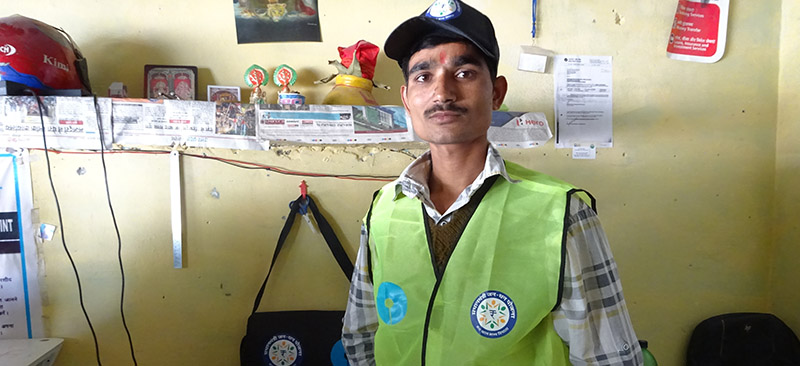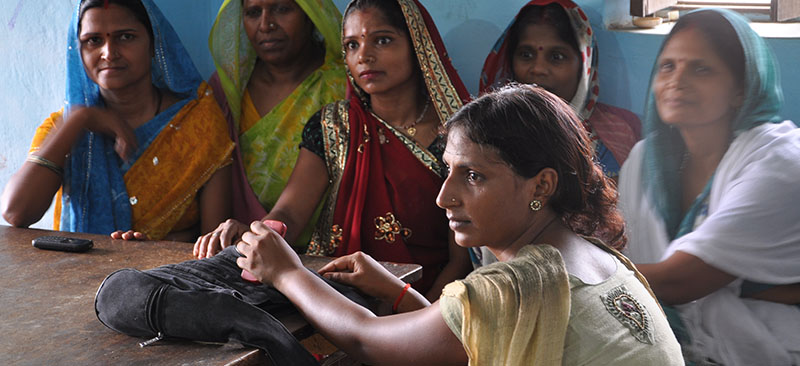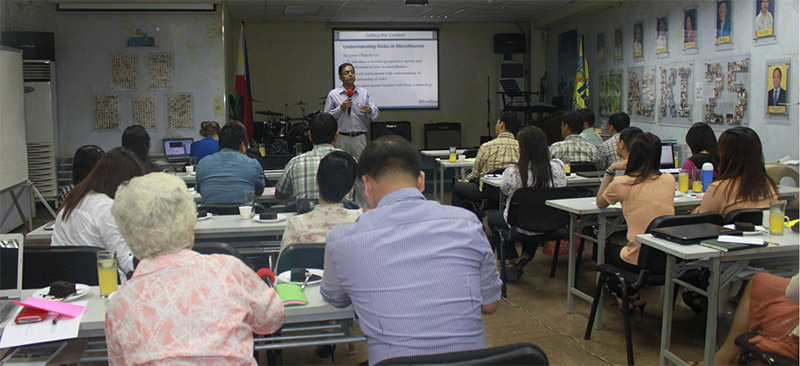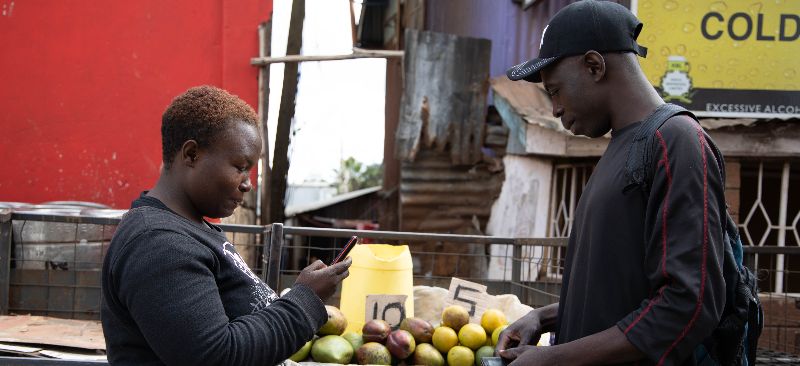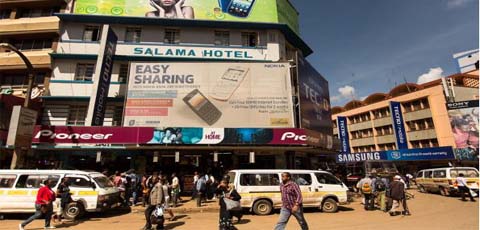There is increasing evidence from countries such as Pakistan, Brazil, Columbia, Mexico and South Africa that the government-to-person payments offered through digital and branchless banking channels could be a stepping stone to financial inclusion. The Government of India and the Reserve Bank of India have adopted a similar path to financial inclusion in India. While the target beneficiaries and the channels used under social benefit schemes and subsidy programmes and FIP are the same, financial inclusion is not being achieved as the efforts of the stakeholders driving these are not aligned. This Note analyses the demand as well as supply side impediments to realising the potential of G2P payments to further the cause of financial inclusion in India.
Blog
Small Finance Bank Licences: Not the End of the Road for Non-SFB MFIs
Eight NBFC-MFIs received ‘in-principle’approval from RBI to set up SFBs. However, a few big NBFC MFIs missed out or did not apply for SFB license. Once transformed SFBs will enjoy better legal identity, access to public deposits and capacity to expand varied market segment. However, it may be not the end of the road for non-SFB MFIs. The transformation phase of SFBs likely to provide short to medium term advantage to non SFB MFIs. SBFs may face challenges in producing majestic growth numbers as funding under priority sector lending and managed loan portfolio will dry up gradually. This will be time for Non-SFB MFIs to strengthen operational processes and develop robust control structures to increase their competitive advantage. Non-SFB MFIs can also find ways to increase their market share, some may – Expand through strategic tie-ups, take up segments/geographies that SFBs may vacate and expanding off balance sheet portfolio. This note discus all these aspects in details.
Using Score-based Audit for Improving Organisational Effectiveness
The consolidation of multiple audit reports into an organisational level audit report is often a challenge for the audit department. This is mainly because of the large volumes of data that come from different levels and regions of the organisation. Consolidating them into a coherent report that highlights key issues and gives a comparative picture of the different operational levels requires a lot of time and effort. MFIs can overcome these challenges by using a Score-based Audit tool, which is designed using audit-checklists. This Note highlights the advantages of using the Score-based Audit tool, the types of audit tools to be used, designing a methodology and the procedure to use it.
Re-thinking MFI Operations using Mobile Technology
In Indonesia, microfinance is offered by a variety of institutions, namely credit and savings cooperatives, BPRs/rural banks, venture capital firms, rural branches of commercial banks and informal village banking institutions. Despite this, only 36% of the total population above 15 years of age has access to formal financial services. This indicates that there is a huge untapped market wherein MFIs could reach out to those financially excluded from formal financial services. MFIs could do so more efficiently using the technology and, particularly, digital financial services. And this could be instrumental in increasing financial inclusion.
The microfinance sector in Indonesia continues to lag behind countries like India, Kenya and the Philippines in leveraging technology to optimise operations. The back office core banking solution or the information system used by MFIs to manage and track client-level transactions and financial accounting are often working fine, but the front end typically remains paper-based. MicroSave, which has worked with more than 30 of the leading MFIs in Indonesia, has found that very few of these MFIs used front-end technology, with the exception to update their regular repayment transactions.
Front-end technology includes the use of a hand-held device/mobile/tablet to digitise the information flow and update the records directly into the core banking solution. These devices are loaded with CRM (Customer Relationship Management) solutions — a system for managing a company’s interactions with current and future customers. It often involves using technology to organise, automate, and synchronise sales, marketing, customer service and technical support. MFIs have used CRM solutions to manage the entire customer life cycle right from acquisition to post disbursement servicing, all on a single platform. Most of the CRM solutions available in the market are built on an android operating system and are more user-friendly and intuitive for field staff such as loan officers and branch managers.
The figure below shows a few common functionalities which a financial CRM can offer to an MFI. (This is not an exhaustive list of functionalities and there could be many more such as analytics, etc., which can be offered by a financial CRM):
Financial CRM for MFIs
Lead Generation
|
Lending Platform
|
Loan Utilisation Check and Monitoring
|
Loan Repayment
|
MFIs can garner the following advantages by using mobile technology:

*Above figure has been adapted from MicroSave’s DFS for MFIs Toolkit and Accion’s Case Study on Digital Field Applications

The adjacent figure shows an example of how a front-end procedure of client sourcing/loan origination will look like after adapting to mobile technology.
The benefits listed above and with the ease of processing as shown in the adjacent figure clearly demonstrate that by using mobile technology, MFIs would not only be able to streamline their operations and reduce redundant manual work flows but would also be able to increase the access to and quality of financial services.
In India, most of the medium-sized and big financial institutions have already started rolling out such technology.As highlighted in a case study on digital field applications published by Accion, Ujjivan, one of the largest MFIs, has been able to improve its staff caseload efficiency by 34% after adapting to front-end technology. Similarly, in Kenya, Musoni was able to reduce loan processing time from 72 hours to just 6 hours.
For more details, we encourage you to watch a video of Musoni. Musoni has embraced technology in every aspect of its operations. The MFI uses M-PESA to transfer cash into the mobile wallets of customers.
While the benefits are quite evident, MFIs must carefully consider the following issues before venturing into a new technology-enabled provision of financial services:
- The strategic objective of using the new technology should be clear to the management as well as all the staff of an MFI
- The MFI’s existing core banking system must enable integration with the CRM module – particularly where the CRM module is supplied by a new vendor
- The market environment and infrastructure (including mobile penetration and connectivity, field staff literacy levels, etc.) play a critical role in choosing the front-end technology and the user interface
- The reliability of the CRM technology to not only handle the current scale of transactions but also an expected growth in the medium term
Evidently, time is ripe for MFIs in Indonesia to leverage technology and take their operations to the next level. MicroSave, with the support of MetLife Foundation, conducted a training in Indonesia on the use of DFS. The training covered a breadth of issues that will help interested MFIs to craft robust strategies in enhancing their financial services. We are keenly looking forward to working with several of them to implement these initiatives.
Managing Risks in Digital Financial Services
Watch MSC’s Director, Manoj Sharma, talk about managing risk in Digital Financial space and the issues that concern users in this technology-led financial services.
Accelerating agent banking in Kenya – Part one
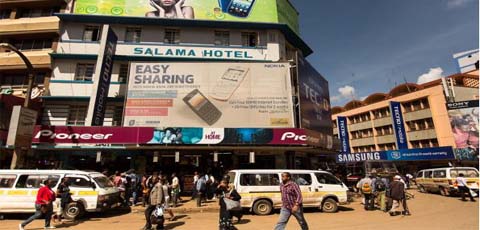
This blog was originally posted on the CFI Accion Blog.
The Helix Institute of Digital Finance recently launched the Kenya Country Report 2014 as part of their Agent Network Accelerator (ANA) project. The ANA project is aimed at increasing global understanding of how to build and manage sustainable digital financial services (DFS) networks by conducting large-scale research among DFS agents and issuing training to providers and other stakeholders. In this two-part interview, Dorieke Kuijpers, Research Project Manager at the Helix Institute and co-author of the report, provides insight into the ANA project and the Kenya Country Report.
The new Kenya report focuses on the operational determinants of success in agent network management. By way of background, can you give an overview of these components and tell us about the scope of this survey?
The country report is based on 2,128 mobile money agent interviews carried out in 2014 across Kenya. For the survey, we partnered with Research Solutions Africa (RSA), a research firm that has vast experience working in several African countries. After undergoing intensive training by MicroSave’s lead researchers, the team of enumerators recruited by RSA conducted the several-thousand interviews with mobile money agents spread throughout the country. The findings of the survey resulted in the Kenya 2014 Country Report as well as five (confidential) reports that present providers with an overview of provider-specific findings.
The questionnaire that we used focuses on five operational determinants of success in agent network management, or pillars, as we call them. Both our country reports and our provider reports are based on these pillars. The first pillar, agent and agency demographics, helps us develop an agent profile at the country level and covers indicators such as the age of an agency and the proportion of dedicated and exclusive agents. Core agency operations is the crux of the research as this pillar looks at the health of an agency—e.g. the products and services offered, the number of daily transactions, the types of transactions conducted, and the average value of transactions. Liquidity management looks at an agent’s liquidity practices and needs and how these affect their daily transaction levels. The pillar quality of provider support analyzes the extent to which service providers support their agents in terms of training and refresher trainings, monitoring visits, and availability of call centres. Lastly, business model viability assesses the financial strength of an agent.
How does Kenya’s agent banking network compare to other countries? Aside from its high customer uptake figures, what are some of the ways the Kenyan agent network stands out?
We find that in many ways, bank agents in Kenya are offering additional services as opposed to competing with mobile network operator (MNO) agents, which is quite unique. For example, more bank agents than MNO agents offer money transfer services and bill payment. In addition, bank agents in Kenya offer their customers the opportunity to deposit savings to a bank.
Our industry has placed a lot of emphasis on whether agents are managed by a bank or a mobile network operator. In Kenya, there are indeed a lot of differences between these two types of models, but in some of the other countries we have studied – in particular, India, Pakistan and Bangladesh – the bank branch penetration is higher and banks have more customers than the banks in Kenya. Their approach to DFS is different than that of banks in Kenya and is more akin to the approach used by telecom companies in Kenya. In our India Country Report 2014, we provide insights into the differences between existing models and their approaches in India.
The Agent Network Accelerator project includes assessments carried out in eight countries across Africa and Asia. Along with these efforts, what else is included in the ANA project?
The ANA project is the largest research project on agent networks in the world and has set out to conduct detailed assessments in eight countries (Uganda, Tanzania, Kenya, Nigeria, India, Indonesia, Bangladesh, and Pakistan), twice, over a period of four years. With the continued support of the Bill & Melinda Gates Foundation, we have already conducted over 22,500 agent interviews. In addition to Kenya, we will be conducting second rounds of research in Tanzania and Uganda this year.
Beyond completing the second round of surveys in the eight countries over the next two years, we are expanding the project in three important ways: 1) benchmarking research processes and survey rationalization; 2) geographical expansion within Africa, and 3) developing new training courses.
Our research team is constantly benchmarking its processes to ensure we keep delivering quality research that meets the industry’s best practices. At the moment, we are developing a rigorous automated process to our quality control systems in the field, and we are increasing the capacity of our analysis team. Additionally, we’re working on standardizing our questionnaires even more in order to make them more replicable. Another development on the research front includes the expansion of the ANA project: in collaboration with the United Nations Capital Development Fund (UNCDF), we are conducting Agent Network Assessments and training courses in Zambia and Senegal this year. The assessment in Senegal will be the first one we carry out in West Africa. We look forward to gaining a deeper understanding of the DFS markets in this region and how they compare to the East African and South Asian markets. With the support of existing and additional supporters, we hope to continue expanding our research to other countries and regions.
The extensive data gathered through the ANA research forms the foundation for the training courses that we offer. By combining the research with hands-on field visits and conversations with practitioners that built successful agent networks, we ensure practitioners leave our training with the competitive advantage needed to accelerate their agent networks. In addition to our Core Agent Network Accelerator (CANA) training, we piloted a new course in August, Product Development Accelerator (PDA) course, aimed at training providers in adopting a customer-centric approach when developing new DFS products.
